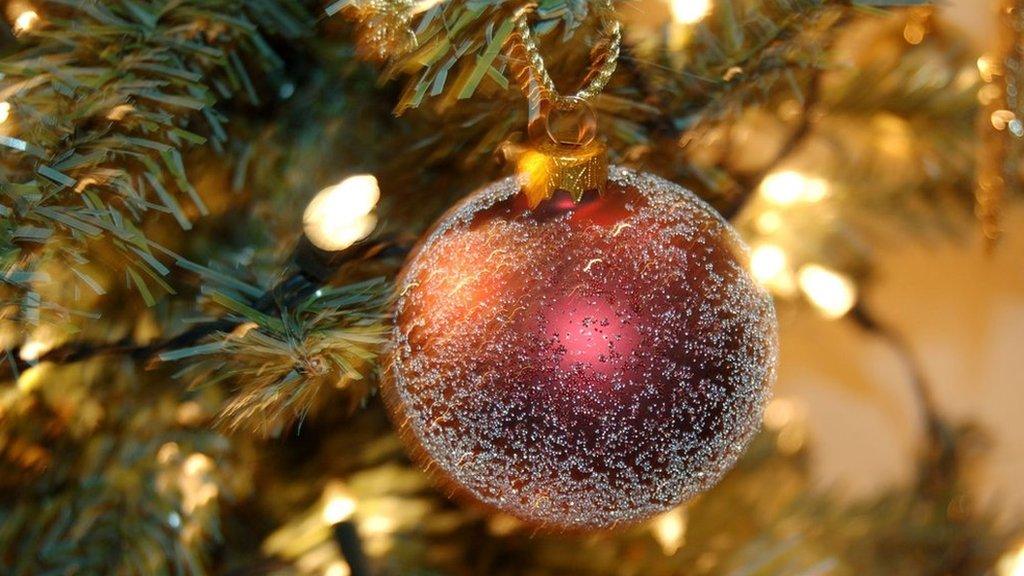Have 'non-traditional' advent calendars peaked already?
- Published
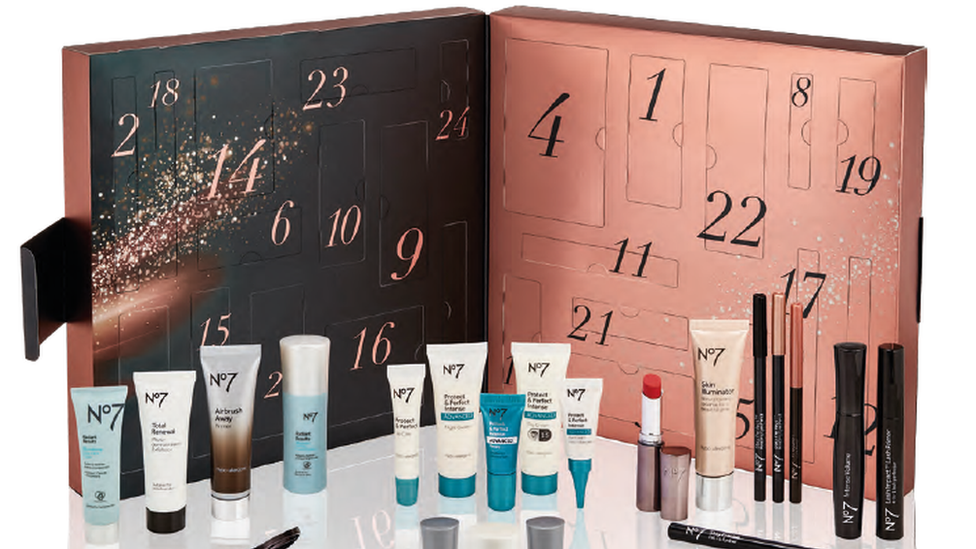
Boots says there was a waiting list of 90,000 for its No7 advent calendar
So-called adult or "non traditional" advent calendars have become a huge hit on the High Street in the last few years. But are there now too many of them?
These specialist - and pricey - calendars often sell out within weeks, or so retailers like to boast.
Take Boots' No7 Beauty Advent Calendar, which offers a cosmetic gift under each of its 25 doors during the run-up to Christmas Day. The pharmacy chain claims there was a 90,000-person waiting list for the product this year and when it finally went on sale it sold out in two days.
What's more, it was just one of 25 gift calendars on sale at the retailer this season.
Advent calendars of yore were mainly aimed at kids and contained biblical-themed pictures or chocolate, but the new breed promise "real" gifts for adults and cover almost every type of product, from pork scratchings to gin, cosmetics to sex toys.
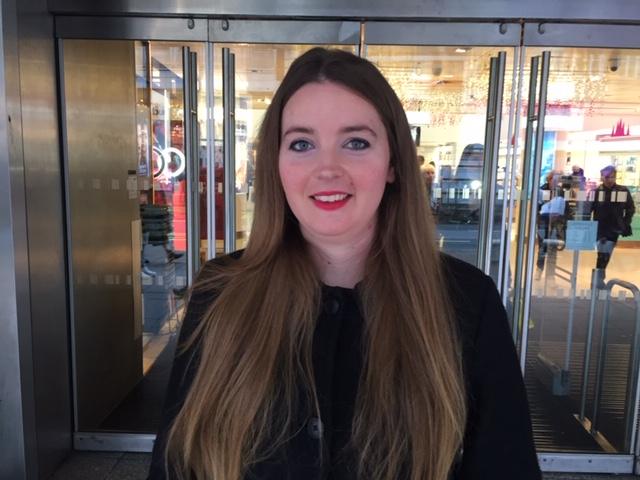
Rosanna says the new calendars remind her of her childhood
They can cost anywhere from a few pounds up to £10,000 for luxury offerings, but many people have questioned their value for money.
Moreover, as brands rush to offer their own calendars, some analysts think there are now too many on the market and we may be about to hit "peak calendar".
On London's Oxford Street, shopper Rosanna has just visited John Lewis, which is selling 15 different non-traditional advent calendars this year.
Rip-off?
She tells me she likes the concept. "They look quite nice and they remind you of childhood," she says.
She was given a beauty calendar last year but found it was a bit of a letdown as the products in it weren't necessarily suitable for her skin - one of the perils of giving such a specialised product as a gift to someone else.
Shopper Sarafina isn't so keen on these sort of calendars in general. "I just think they are a waste of money and the products you get inside them are usually miniatures, so it doesn't give you a good idea of what you are actually going to get [from that product]. It's bit of a rip-off."
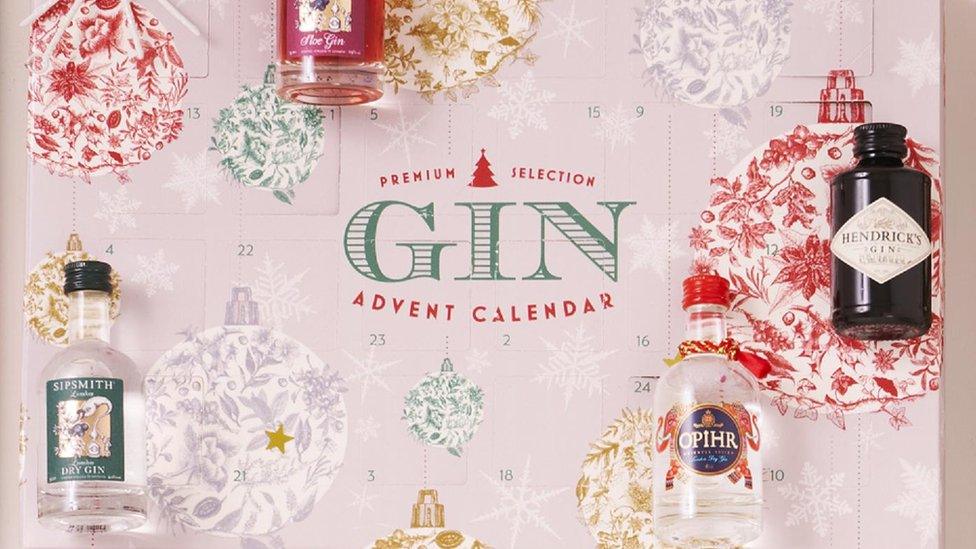
Sainsbury's Gin advent calendar features 24 different premium gins
Retailers say calendars allow customers to discover new products they might never have thought of before, and experiment without having to buy the full-sized product (although some of them do offer full-sized gifts).
Take, for example, the Sainsbury's Gin advent calendar, which costs £60 and features 24 different premium gins in miniature bottles.
Catherine Shuttleworth, of shopping research consultancy Savvy, says the calendars can be given as gifts but many people buy them to pamper themselves. They're also especially popular with consumers born in the 1980s and 1990s.
"Millennials are used to having chocolate ones as kids and now they are grown up they want adult ones," she says.
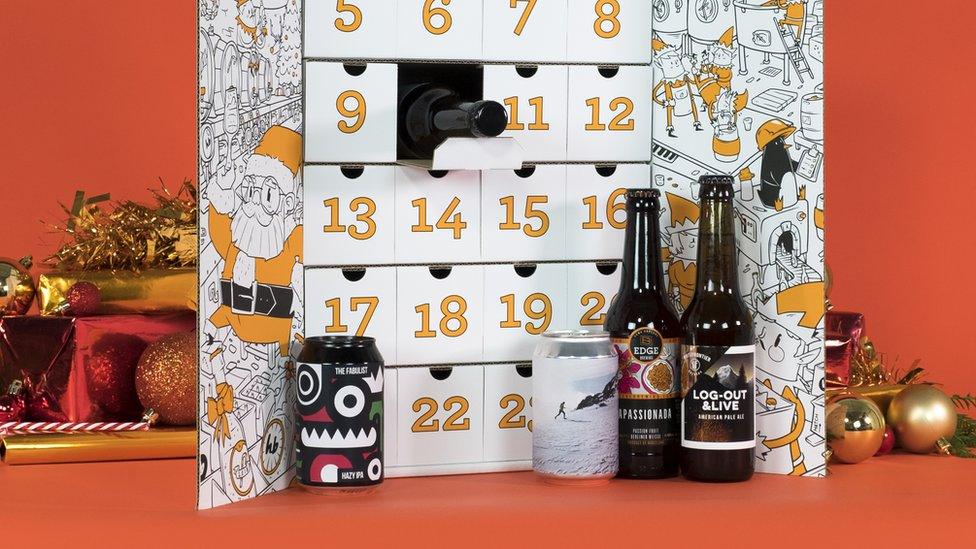
HonestBrew's advent calendar contains 15 different types of craft beer
'Bit of a novelty'
Interestingly, the shoppers I spoke to said they did not consider non-traditional calendars to be Christmas presents, and if a friend or family member gave them one they would "definitely" expect to receive an actual Christmas present later on.
Retailers are well aware of this, believes Jasmine Birtles, a consumer trends expert. She thinks calendars can be "beautifully designed" and are a bit of a novelty like Christmas hampers, but they are also a cunning way of getting us to spend more during the festive season.
"We've got Black Friday, Cyber Monday and New Year and now retailers are turning 'pre-Christmas' into a shopping event," she says.
Many of the calendars on sale claim to offer goods at a knockdown price. Boots, for instance, sold its No7 product for £42 but said it contained cosmetics worth £177.

You can get advent calendars for almost any product, even dog treats
But Ms Shuttleworth says retailers still make a good margin on the calendars and also use them as a marketing tool for the Christmas shopping season.
She points to the M&S advent calendar that is filled with goodies from well-known beauty brands like L'Occitane and Ren, and is available at a discounted price of £35 if you also spend £35 on other goods in the store. Otherwise it costs you £70.
Peak calendar?
The adult calendar trend began in the beauty sector around the turn of the decade, but it's expanded in the last few years to cover almost every type of product imaginable.
This festive season you'll find products from companies as diverse as Boostbox protein bars, Lego, Duerr's jam and Kellogg's, which is selling a cereal bar calendar.
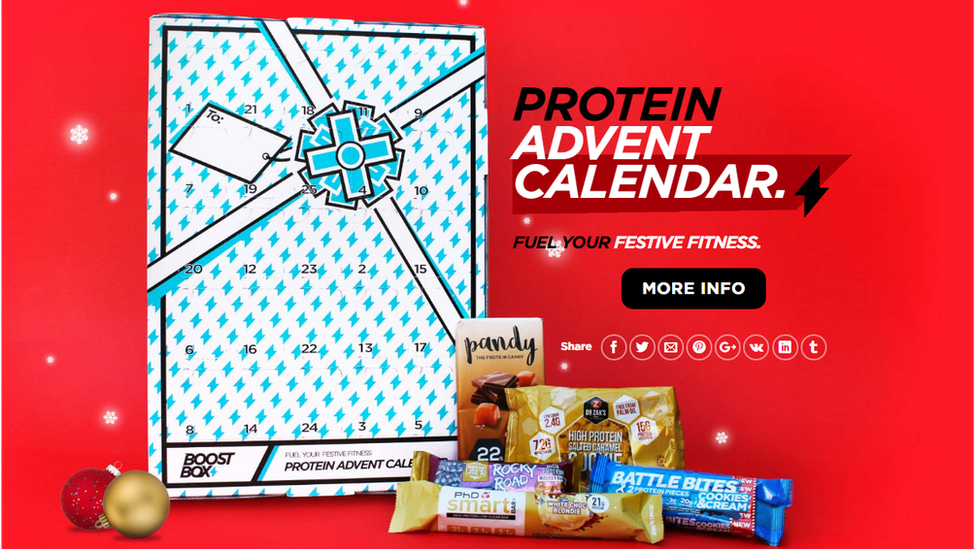
Boostbox is selling a protein bar advent calendar
Ms Shuttleworth says such products will be "everywhere" this year but there's a risk that too many will be vying for our attention.
"This trend has been building up for a while but I think it could peak this year. You have also got to remember that these calendars are no use to you after 1 December and I think you are going to see a lot of them not selling and being reduced."
Retailers I spoke to didn't say anything about a slowdown, though.
A spokeswoman for Boots said the chain had once again increased its beauty advent calendar range this season to reflect their "growing popularity".
And John Lewis said it was offering a wider range than ever. "We have seen our own John Lewis & Partners calendar selling 36% ahead of last year," a spokeswoman added.
- Published25 November 2017
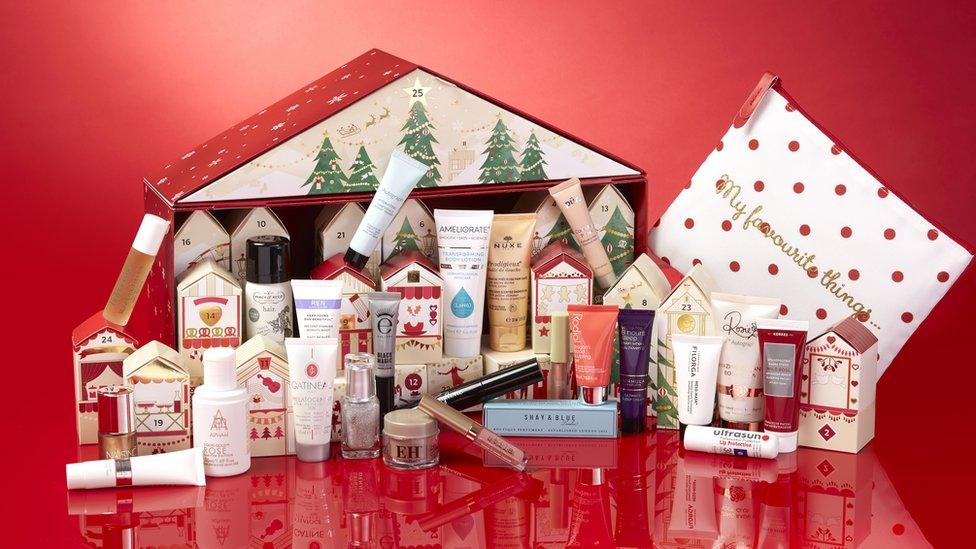
- Published6 November 2018
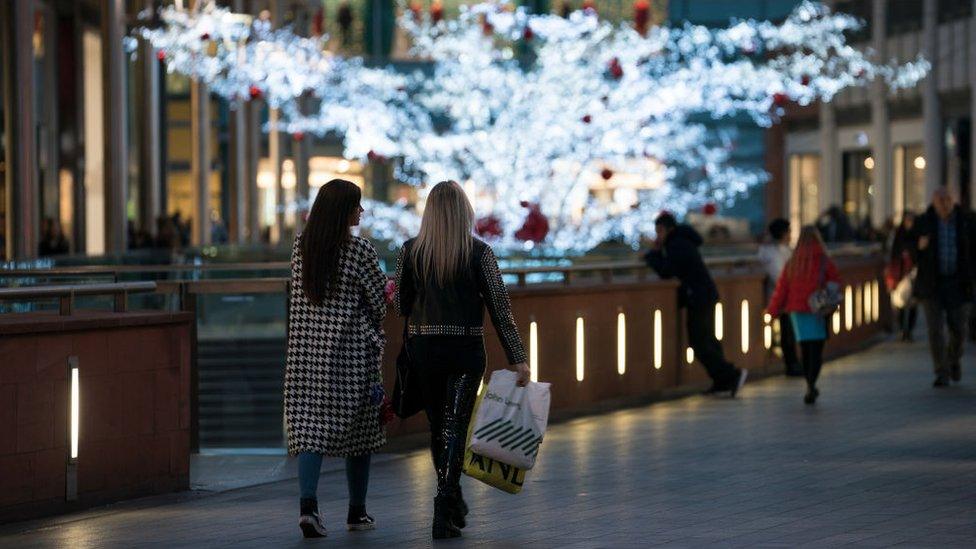
- Published12 September 2018
